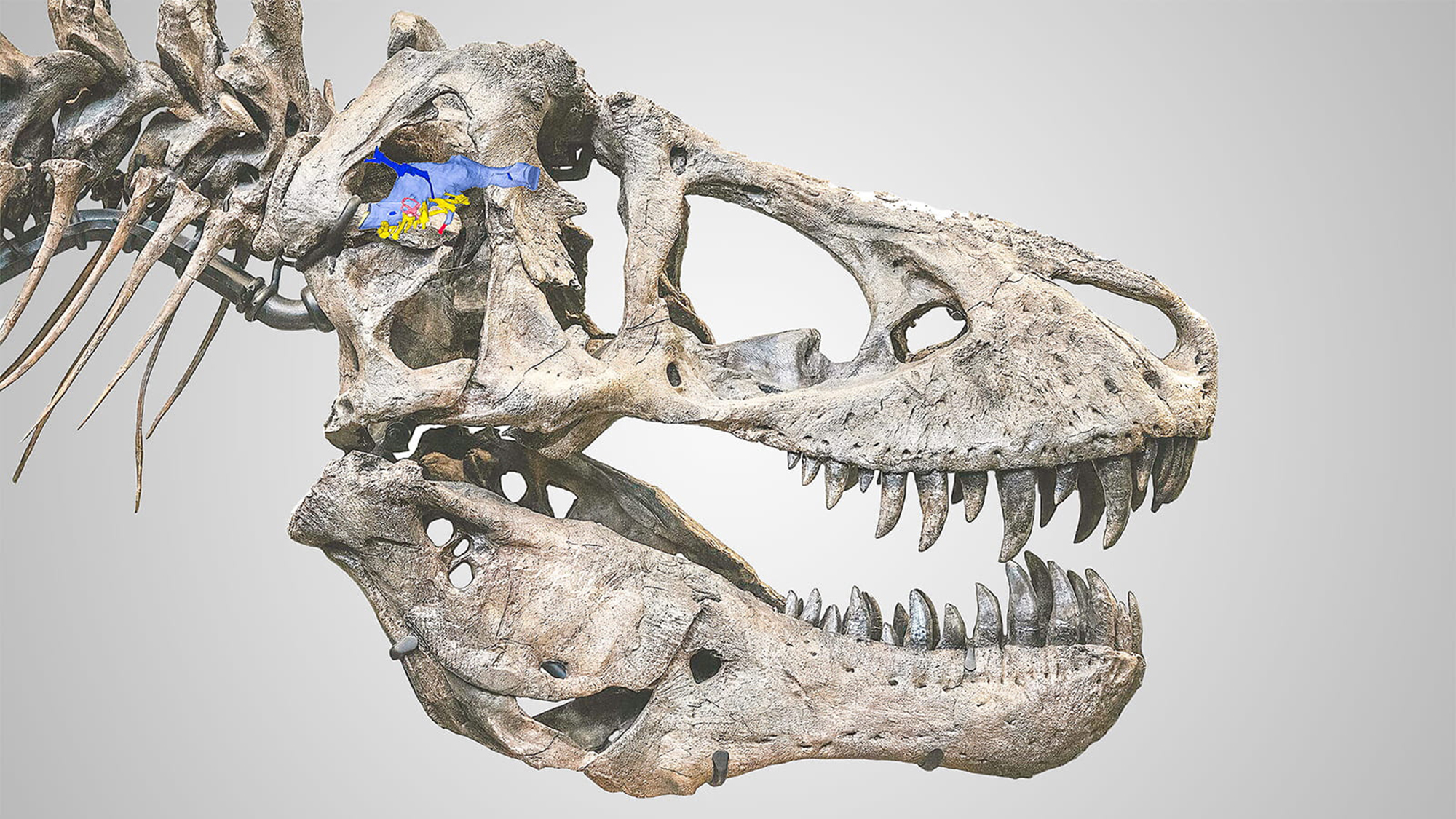
In recent studies, neuroscientists have reevaluated the intelligence level of the Tyrannosaurus rex (T. rex) based on new evidence. Previously, a study by Suzana Herculano-Houzel from Vanderbilt University suggested that T. rex had more than 3 billion neurons, making it potentially as intelligent as primates or even monkeys (Herculano-Houzel, 2023). However, new research challenges this notion. According to a study published in The Anatomical Record journal by an international team of scientists from the University of Southampton and University of Bristol, T. rex's cognitive abilities were more in line with those of a lizard or crocodile (Naish et al., 2024).
The researchers found that previous brain-size estimates for T. rex had been inflated due to not taking into account the presence of cerebrospinal fluid in dinosaur skulls. Additionally, neuron count alone is not a reliable indicator of intelligence, as it only provides an estimate and does not consider other factors such as brain structure and behavioral evidence (Bertrand et al., 2024).
The team's findings suggest that T. rex was likely to have had cognitive abilities similar to those of modern-day reptiles, which are known for their survival skills and adaptability. However, it is important to note that intelligence is not the only factor contributing to an animal's success or ability to survive in its environment (George et al., 2024).
The debate surrounding T. rex's intelligence highlights the importance of considering multiple lines of evidence when studying extinct animals, including gross anatomy, fossil footprints, and behavioral evidence (Bertrand et al., 2024). By combining these different sources of information, scientists can gain a more comprehensive understanding of the cognitive abilities and overall biology of extinct species.



